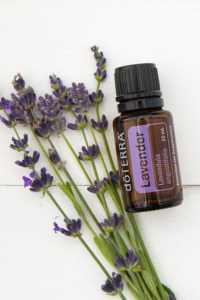Magic but
 As a health professional, I have learned that there are many tools to help us stay well and address problems as they arise. Over the years, I have relied on chiropractic, acupuncture, herbs, tapping, meditation, and of course, essential oils, to help me avoid the need for things that may have secondary harmful effects on my body. As a nurse, I realize that it is necessary to rely on “traditional” routes of health care from time to time to help with more severe issues. However, in the long-term, the fewer synthetically derived chemicals I use, the happier I am. Which brings me to the topic of essential oils. They have often have worked like magic in my life. They are my first go-to for soothing my discomfort, helping me with stress, getting better sleep, promoting a healthy inflammatory response and helping to maintain a healthy blood sugar. The list goes on. It can feel magical when a drop of peppermint quickly eases neck or head tension or when a blend of oils helps me sleep deeper and longer. My mood is lifted when smelling citrus oils and I can focus longer when diffusing patchouli or vetiver. Though it sometimes feels magical, essential oils are not magic. Essential oils are complex mixtures of volatile compounds, particularly abundant in aromatic plants. Each oil is composed of a variety of chemicals that can work in our bodies towards a specific outcome. Essential oils and herbs, however, being derived from nature, are recognized by the body and tend not to have adverse reactions when used correctly. They are not magic, because each essential oil is comprised of chemicals such as sesquiterpenes and monoterpenes, limonene, pinene, and geraniol are just a few of the naturally occurring chemicals in essential oils.
As a health professional, I have learned that there are many tools to help us stay well and address problems as they arise. Over the years, I have relied on chiropractic, acupuncture, herbs, tapping, meditation, and of course, essential oils, to help me avoid the need for things that may have secondary harmful effects on my body. As a nurse, I realize that it is necessary to rely on “traditional” routes of health care from time to time to help with more severe issues. However, in the long-term, the fewer synthetically derived chemicals I use, the happier I am. Which brings me to the topic of essential oils. They have often have worked like magic in my life. They are my first go-to for soothing my discomfort, helping me with stress, getting better sleep, promoting a healthy inflammatory response and helping to maintain a healthy blood sugar. The list goes on. It can feel magical when a drop of peppermint quickly eases neck or head tension or when a blend of oils helps me sleep deeper and longer. My mood is lifted when smelling citrus oils and I can focus longer when diffusing patchouli or vetiver. Though it sometimes feels magical, essential oils are not magic. Essential oils are complex mixtures of volatile compounds, particularly abundant in aromatic plants. Each oil is composed of a variety of chemicals that can work in our bodies towards a specific outcome. Essential oils and herbs, however, being derived from nature, are recognized by the body and tend not to have adverse reactions when used correctly. They are not magic, because each essential oil is comprised of chemicals such as sesquiterpenes and monoterpenes, limonene, pinene, and geraniol are just a few of the naturally occurring chemicals in essential oils.
In the past, essential oils have been considered snake oils, or have often been thought to have a placebo effect. Today, as more and more people experience the magical properties of essential oils, more and more studies are being done to help us learn how they work in our bodies. Here are just a few of the ways that essential oils work.
When we inhale essential oils, the molecules interact with the olfactory organs and, almost immediately, interact with the brain. During inhalation, molecules travel through the nose through a variety of receptor sites, one of which is the limbic system, commonly referred to as the “emotional brain.” This is one of the ways essential oils can affect mood and memory. Molecules inhaled through the nose or mouth are carried to the lungs and interact with the respiratory system. Thus inhaled essential oils can affect the body through several systems and pathways.
Essential oils can also be used topically. The active chemicals in essential oils are absorbed through the skin, similar to how a nicotine patch might work. Our skin is our biggest organ and what we put on it goes into our body! The components that are in oils have a wide variety of interactions that can be helpful such as how lavender can decrease cortisol levels in our body explained in this study.
Ingesting essential oils has been a controversial topic. Since many essential oils are chemically extracted or have at least part of their components chemically derived, knowing about where your essential oils come from and how they are tested becomes important. I have used oils such as peppermint, ginger in tea, or a capsule to soothe an upset stomach, aid in digestion, support my immunity and create calm (if you have not guessed this is another wonderful benefit of lavender oils).
If you are someone who like me, is looking for ways to support your health naturally, to have improved sleep, ease digestion problems, soothe discomfort, then you too may find the magical results from essential oils based on science … not magic.
Great health starts with what you put in, on and around your body. Let’s talk. Set up a 30-minute strategy session to learn how you can live your healthiest most vibrant life.
